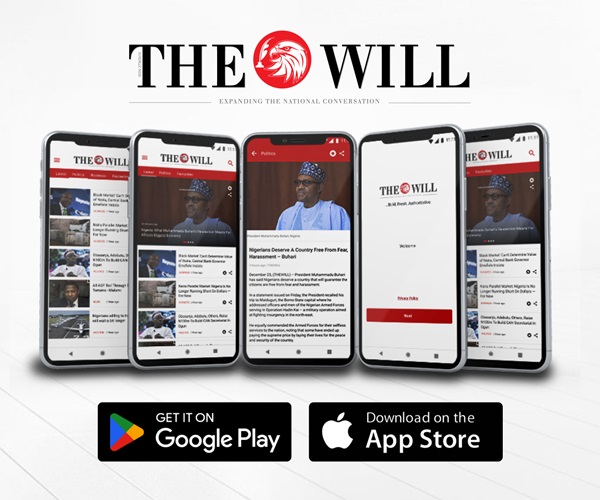April 14, (THEWILL) – In today’s global economy, financial strength is not solely measured by production output or trade flows. It is built on trust — on whether the world believes in a country’s currency, its institutions, and its long-term stability.
The United States, through the dollar, operates with an immense surplus of symbolic and fictional capital — the ability to convert global belief into monetary advantage. In essence, the U.S. runs a symbolic capital surplus by monetising trust, institutional credibility, and a narrative of stability. That surplus can be as valuable — sometimes more so — than oil, technology, or even military might.
West Africa, by contrast, does not have access to these privileged arrangements. The Leone, for instance, cannot be used as collateral in global dollar operations. Central banks in the region must source dollars through market mechanisms, often under harsh conditionalities and high interest rates. Countries are required to stockpile dollar reserves — effectively paying insurance premiums to remain viable in a system they do not control.
In effect, West African countries find themselves constantly borrowing not just dollars, but the trust that underpins the value of those dollars.
When financial crises strike, the U.S. Federal Reserve — also known as the Fed — opens central bank liquidity swap lines. These arrangements allow the central banks of America’s key allies — such as Japan, the EU, or the UK — to exchange their own currencies for dollars, without market conditions. No auctions. No intermediaries. These are not merely loans — they are expressions of mutual trust. The dollar flows not simply because of need, but because of credibility, shared history, and strategic alignment.
This mutual trust, symbolic capital, and what may be called “financial nepotism” among allies do not appear in balance of payments data — but their power is undeniable. The U.S. can ‘spend’ this trust — this surplus of symbolism — to stabilise global systems, impose sanctions, or blacklist entities. It is, in effect, diplomacy among friends — or, to borrow from local parlance, “paddy-paddy” business.
These favoured nations show up at the dollar well with gleaming silver pans — instruments the U.S. Fed considers clean and trustworthy. Acting as the global water master, the Fed allows them to dip into the well without hesitation, and invites them to return whenever needed.
West African nations do not receive such treatment. Figuratively, they show up with old, misshapen five-gallon rubber containers — jerry cans that once held cooking oil, now stained, dented, and leaking. They are met with responses like: “Sorry, you can’t dip that into our well. Seek your dollar liquidity elsewhere — try the IMF, or foreign private banks.”
This financial exclusion is not merely technical — it is deeply symbolic. It reflects a hierarchy of belief in which some countries are deemed trustworthy borrowers, while others are seen as risky dependents. The U.S. exports not only liquidity, but also a carefully cultivated narrative of stability.
And so, even the largest West African economies — Nigeria, Ghana, Côte d’Ivoire, Senegal — cannot use their currencies as collateral in global swap lines. Instead, they borrow from markets or institutions like the IMF, often under strict conditions and at high costs. Even when they build dollar reserves, it is not out of surplus but out of fear of exclusion. The stained jerry can becomes a symbol of precarious participation: always fetching, never fully trusted.
In the CFA franc zone — encompassing eight West African countries including Senegal, Côte d’Ivoire, and Mali — the picture is more complex. These nations arrive at the dollar well with shinier pans, because the CFA is pegged to the euro and backed by France. But even that symbolism is borrowed. They may have clean pans, but it is the neighbour’s name engraved on them.
As we say in Krio: “Beg sol nor dae cook” — begging for salt won’t cook your food. Dependency, we might say, does not build development. The peg provides stability and credibility, but monetary policy is not fully in the hands of local institutions. The symbolic capital is real, but not organic — it stems from France’s global standing, not from Dakar, Bamako, or Ouagadougou.
The U.S. can conjure dollars out of thin air, and the world accepts them — because it believes in the system. This is fictional capital: capital that exists as a claim on future production or value, not something already realised. Each time a foreign central bank exchanges its own currency for U.S. dollars, it reinforces the belief that the dollar is the world’s most liquid and safest asset.
This mix of fact and fiction is now being tested. Under the Trump administration, policies on tariffs, NATO, and Ukraine have eroded trust among allies. Doubts have emerged about whether the U.S. can still underwrite the very global system it built.
Yet, the law of inertia still applies. A vehicle travelling at high speed takes time to stop. The U.S. and its allies are riding in such a high-velocity vehicle of trust that even as the wheels wobble, abrupt change is unlikely. The core alliance — the U.S., EU, Japan — may be applying brakes, akin to dual-control cars used for teaching, where the instructor can intervene. Meanwhile, countries in the global periphery, like those in West Africa, continue to import both dollars and the belief systems that sustain them — without the power to reciprocate.
To escape this hierarchy, West Africa needs more than economic growth. It must generate its own symbolic capital. This includes regionally coordinated monetary policy — such as reviving the ECOWAS Eco project — and strengthening African-led frameworks for debt sustainability and credit rating. Transparent and credible central banks, alongside political stability, can help build investor and domestic confidence in African currencies.
Until then, the region will remain at the global well, clutching worn-out containers — always borrowing, not just liquidity, but legitimacy.
***Written by Sesay
Sesay wrote from Fourah Bay College, University of Sierra Leone.






